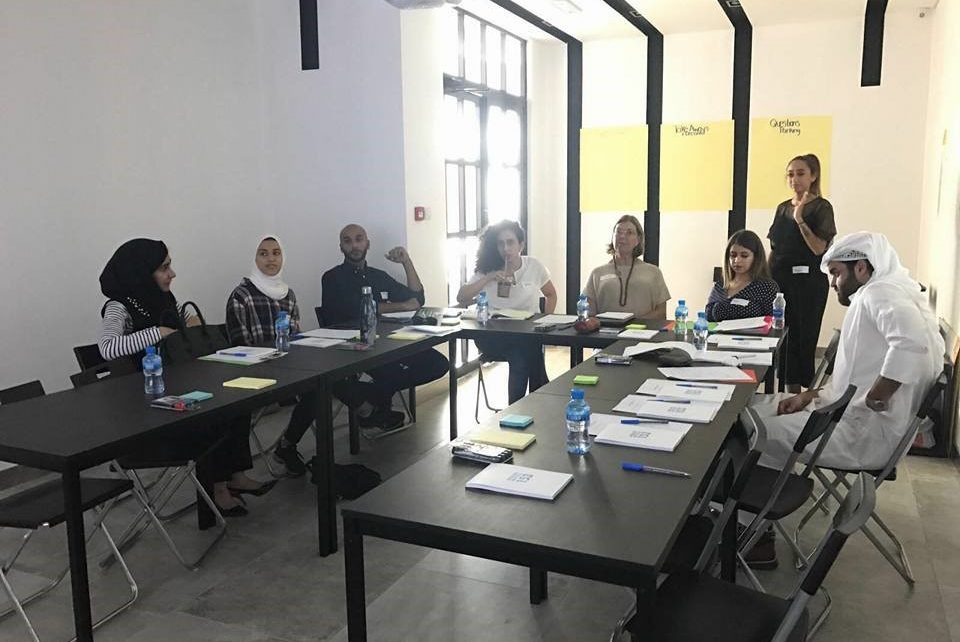Abolish Article 153- Kuwait
Context:
Kuwait has a population of 3.89 million and GDP US$114.04 billion. While youth unemployment rate is 2.4%, Kuwait is the only ESCWA member state where unemployment among male youth (2.6%) is higher than that among female youth (2.1%). The average educational attainment is 5.8 school years in Kuwait where the adjusted net enrolment rate for upper secondary education reached 65.5% in 2012. Youth political participation is below average at 0.415 while civic participation is above average at 0.62.
Campaign “Abolish Article 153” was initiated by rights’ activists and academics who formed a pressure group in 2015 to raise awareness among women and decision-makers on Article 153[1] of the Kuwaiti Penal Code. The problem that this campaign seeks to address is violence against women, as this article mitigates punishment for those who commit so-called “honour crimes”.
Implementation of programme/ initiative:
This campaign was initiated by five women with high interest in public policy who aimed at repealing article 153. The campaign was keen to create a pressure group and to cooperate with the deputies of the State Council and the Ministers to achieve the desired goals. More specifically, the campaign seeks to pass a new law to protect women from violence. The campaign also seeks the harmonization of different laws to ensure women’s and children’s rights.
Main challenges:
- Dissolution of Parliament and re-election
- Inability of the campaign to provide full support for the abused women and girls who have submitted complaints.
- Lack of cooperation from deputies due to the sensitivity of the topic in the Kuwaiti society
Results achieved:
The campaign has had impact on different levels.
At the level of policy making:
- The Committee on Women and Families in the former Kuwaiti parliament had raised the issue of amending Article 153 to the Minister of Justice.
- One of the parliament deputies adopted the campaign and succeeded in obtaining the necessary number of signatures from his fellow deputies to discuss Article 153 in the Council’s next session.
At the level of capacity-building, the campaign received funding from the Middle East Partnership Initiative and conducted several successful workshops including:
- Gender Based Violence Prevention Workshop in English in February 2017 with participants showing 87.5% increase in knowledge about gender based violence based on pre-post survey
- Gender Based Violence Prevention Workshop in Arabic in February 2017 with participants showing 67% increase in knowledge about gender based violence based on pre-post survey
- Youth Gender Based Violence Prevention Drama Workshop in February 2017 with attendance of more than 100 participants
- Female Police officer training with Ministry of Interior in April 2017
- Lobbying and campaigning workshop in May 2017 showing 100% increase in knowledge about lobbying and campaigning based on pre-post survey
Finally, the campaign received the Human Rights Award presented by Nicholas Prescott, the European Union Representative in the Gulf and Middle East.
Moving Forward:
The campaign will continue lobbying and advocating to abolish Article 153 and to pass new laws that protect women against violence. The campaign will also continue to conduct capacity-building workshops including CEDAW training workshop in October 2017.
Replicability:
The main success elements of this campaign are monitoring and evaluation at the level of advocacy and during the capacity-building workshops, as well as fund-raising to ensure the sustainability of the campaign.
References:
AHDR 2016
World Bank, 2016
International Labor Organization, 2016
Common Wealth Youth Development Index, 2016
Report of the national workshop on enhancing youth participation in public issues and decision making in Kuwait
[1] Article 153 states that “Anyone who caught his wife with a man in the case of adultery, or caught his daughter or mother or sister with a man in the case of adultery, and killed her or him or killed them together, shall be punished by imprisonment for a period not exceeding three years and a fine of not more than 49 USD or one of these penalties “.
Project Details
Date: October 12, 2017
